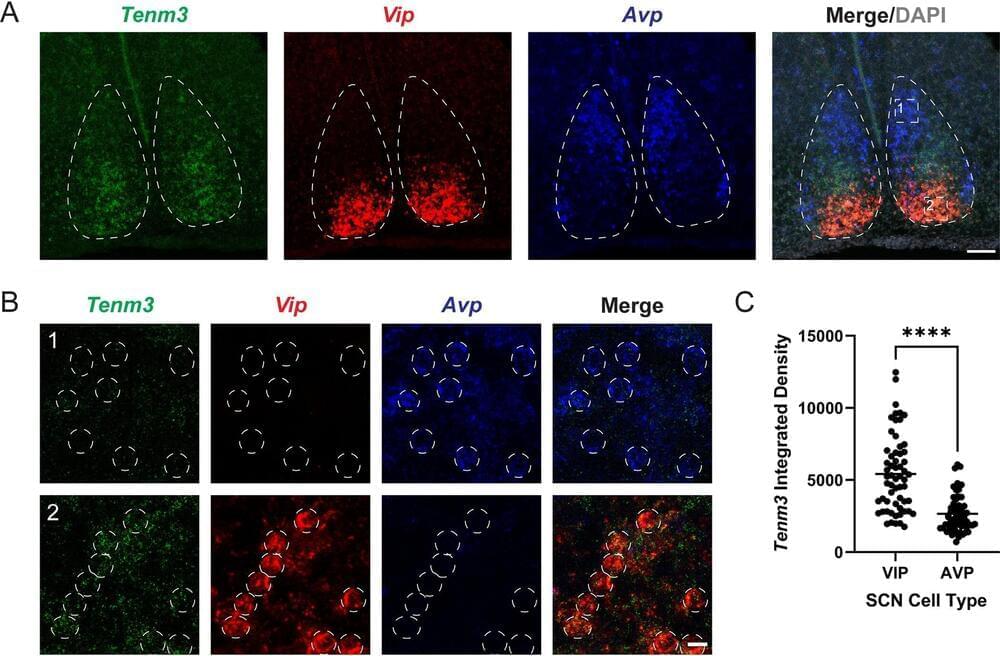Scientists at the Johns Hopkins University School of Medicine and the National Institutes of Health have identified a protein in the visual system of mice that appears to be key for stabilizing the body’s circadian rhythms by buffering the brain’s response to light. The finding, published Dec. 5 in PLoS Biology, advances efforts to better treat sleep disorders and jet lag, the study authors say.
“If circadian rhythms adjusted to every rapid change in illumination, say an eclipse or a very dark and rainy day, they would not be very effective in regulating such periodic behaviors as sleep and hunger. The protein we identified helps wire the brain during neural development to allow for stable responses to circadian rhythm challenges from day to day,” says Alex Kolodkin, Ph.D., professor in the Johns Hopkins Department of Neuroscience and deputy director for the Institute for Basic Biomedical Sciences.
Kolodkin co-led the study with Samer Hattar, Ph.D., chief of the Section on Light and Circadian Rhythms at the National Institute of Mental Health.










Comments are closed.